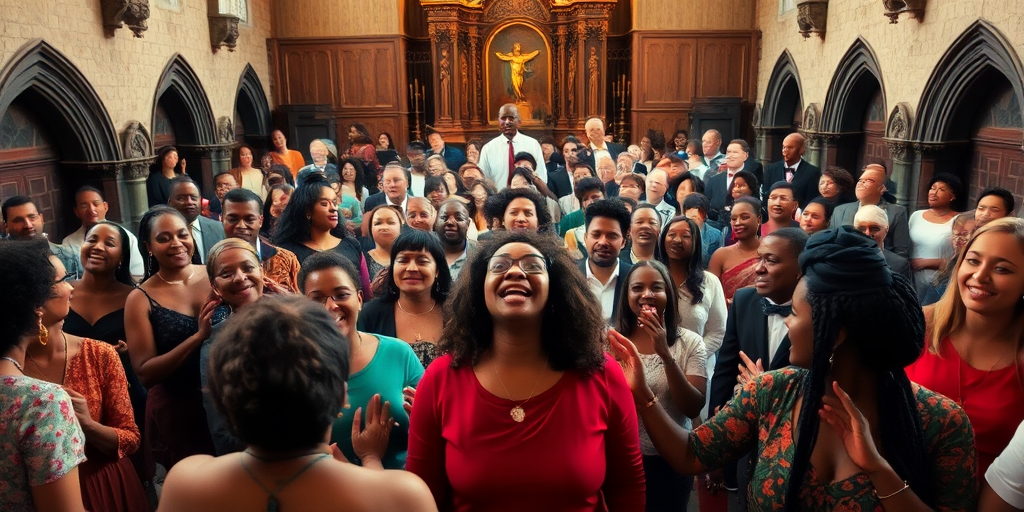Have you ever questioned whether our fast-changing world is sidelining the treasures of gospel heritage? We believe that preserving our timeless traditions not only sparks hope but also fortifies the very foundation of our faith. In this post, we explore how historical milestones, biblical teachings, and community initiatives intertwine to uphold the spiritual legacy that unites us. We invite you to join us in rediscovering the power of gospel heritage—and in embracing its enduring message of unity and renewal.
Biblical and Theological Foundations for Preserving Gospel Heritage

The biblical basis for preserving gospel heritage rests in the truth of justification by faith. Scriptures, particularly in Galatians chapter 2, illuminate how God’s grace triumphs over human legalism. We see that the gospel’s power comes not from adherence to rigid rituals but from the transformative grace that redefines our relationship with the divine.
Paul stands as a steadfast defender of gospel truth. In his epistles, he confronts Judaizers who impose legal traditions undermining faith-based salvation. His defense of gospel purity is backed by significant apostolic endorsements from James, Peter, and John. This unified support reinforces that gospel heritage is secured not through human effort but through divine calling and empowerment.
- Galatians 2:16 – Justification by faith apart from works of the law
- Romans 3:24 – Redemption freely given through grace
- Ephesians 2:8 – Salvation as a gift, not a result of human merit
- Hebrews 4:16 – Bold access to the throne of grace for believers
- 2 Corinthians 5:21 – Christ made sin for us, highlighting the Infinite Atonement
These doctrinal points serve as pillars for our faith and guide us in safeguarding the spiritual texts that shape our identity. By embracing the eternal truths of divine grace and the Infinite Atonement, we affirm that preserving our canonical records is an act of deep spiritual commitment. In standing against legalistic distortions and upholding the Scriptures, we ensure that gospel heritage remains a living testament to faith, guiding future generations in the relentless pursuit of truth and spiritual renewal.
Practical Strategies for Preserving Gospel Heritage in Daily Ministry
We must embrace intentional daily practices that safeguard our gospel legacy. Practical and deliberate steps empower us to integrate our faith into every aspect of ministry, ensuring that our historical and doctrinal archives remain vibrant for future generations. Through a commitment to disciplined living, strategic church record management, and dynamic leadership, we can honor our heritage meaningfully each day.
- Implementing educational programs
- Documenting church histories
- Mentoring in faith leadership
- Organizing community outreach events
- Utilizing digital platforms for legacy documentation
| Strategy | Action | Outcome |
|---|---|---|
| Educational Programs | Conduct regular workshops and seminars | Informed community and empowered leaders |
| Church Histories | Systematically record and archive narratives | Preserved legacy and accessible tradition |
| Mentorship Initiatives | Pair experienced leaders with emerging voices | Sustained spiritual growth and leadership continuity |
Daily ministry is enriched by integrating these strategies into every facet of our work. When we implement structured educational programs, archive our rich histories, and mentor emerging leaders, we ensure that the legacy of gospel heritage remains a dynamic force. Each deliberate step, whether organizing community outreach events or embracing digital solutions, strengthens our collective commitment to preserving the sacred traditions that define our faith community. Embracing these actionable strategies not only anchors us in our past, but also lights the way for future generations to experience the transformative power of our gospel heritage.
Final Words
In the action of our discussion, we explored historical milestones, biblical foundations, community initiatives, and practical daily strategies.
We outlined how gospel heritage roots shape our faith and musical expression.
Our review stressed actionable steps and community-based practices that reinforce our commitment through music and ministry.
This synthesis of tradition and active preservation reminds us of The Importance of Preserving Gospel Heritage.
Together, we embrace these insights to continue inspiring faith and renewing our collective spiritual journey.
FAQ
What is spiritual heritage and why is it important?
A: Spiritual heritage encompasses the religious values, traditions, and practices passed down through generations. It provides a foundation for faith, shapes our spiritual identity, and connects us to our religious roots.
How does music play a role in preserving gospel heritage?
A: Music, especially gospel quartets, serves as a powerful vessel for preserving spiritual traditions. It unites communities, teaches biblical truths, and passes down cultural expressions of faith through generations.
What are practical ways to preserve gospel heritage?
A: Key preservation methods include documenting church histories, organizing community events, mentoring younger generations, maintaining digital archives, and supporting gospel music education programs.
How can churches actively protect their spiritual legacy?
A: Churches can protect their legacy by implementing educational programs, recording oral histories, digitizing important documents, hosting regular heritage celebrations, and fostering intergenerational relationships.
What role does community play in maintaining spiritual heritage?
A: Communities strengthen spiritual heritage through shared worship experiences, collective memory preservation, regular gatherings, and collaborative gospel music events that unite believers across generations.
How can families pass down their spiritual heritage?
A: Families can share faith stories, participate in regular worship, maintain prayer traditions, attend gospel music events together, and create meaningful spiritual rituals within the home.
What are the biblical foundations for preserving spiritual heritage?
A: Scripture emphasizes passing faith to future generations through teaching, worship, and community gatherings. This mandate appears throughout both Old and New Testaments as a core responsibility.
